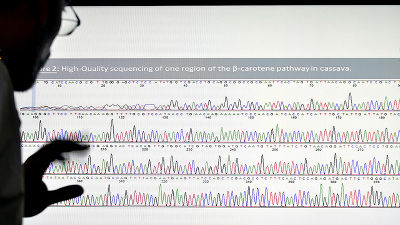Identify the owner of a mutated gene that prevents the onset of Alzheimer's disease, suggesting the possibility of being the key to stopping the progression of Alzheimer's disease

Resilience to autosomal dominant Alzheimer's disease in a Reelin-COLBOS heterozygous man | Nature Medicine
https://doi.org/10.1038/d41586-023-01610-z

How one man's rare Alzheimer's mutation delayed the onset of disease

Over the past several decades, Lopera's research team has been studying families with a genetic mutation called `` Paisa mutation (presenilin 1 E280A) '' that is said to cause Alzheimer's disease between the ages of 45 and 50. .
Members of this family who carry the Paisa mutation are known to, on average, develop mild cognitive impairment around age 44, develop Alzheimer's disease at age 49, and die from Alzheimer's complications in their 60s. I'm here.
On the other hand, the research team conducted a study of a man who developed Alzheimer's disease at the age of 72 and died at the age of 74, which is unique among the family. When the research team performed a CT scan of the man's brain, they found that the man's brain contains a protein complex called ``
However, it was revealed that little tau protein accumulated in a region called ' entorhinal cortex ', which is related to navigation and memory.

Furthermore, when the research team examined the male gene, they discovered that there was a mutation in the gene of a protein called ``
'Despite having many amyloid plaques in his brain, the fact that this man did not develop Alzheimer's disease for a long time suggests that Alzheimer's disease is more common than expected,' said Huang Yadong, a neurologist at the Gladstone Institute. is also complex,' he said. 'Alzheimer's disease has many different etiological factors, only a few of which are thought to be due to amyloid plaques. A variety of therapeutic modalities are needed to ultimately combat this disease.' I am arguing.

``Most of the research to date has focused on the onset factors of Alzheimer's disease, but there is little research on factors that may inhibit the onset,'' Huang points out.
``However, the mechanism by which Reelin mutations affect the tau protein and whether mutating Reelin can help Alzheimer's patients who do not have Paisa mutations is unclear and requires further research,'' he said. ``This discovery is one of the few cases that may open the door to anti-Alzheimer's disease research,'' he said.
Related Posts:
in Science, Posted by log1r_ut







